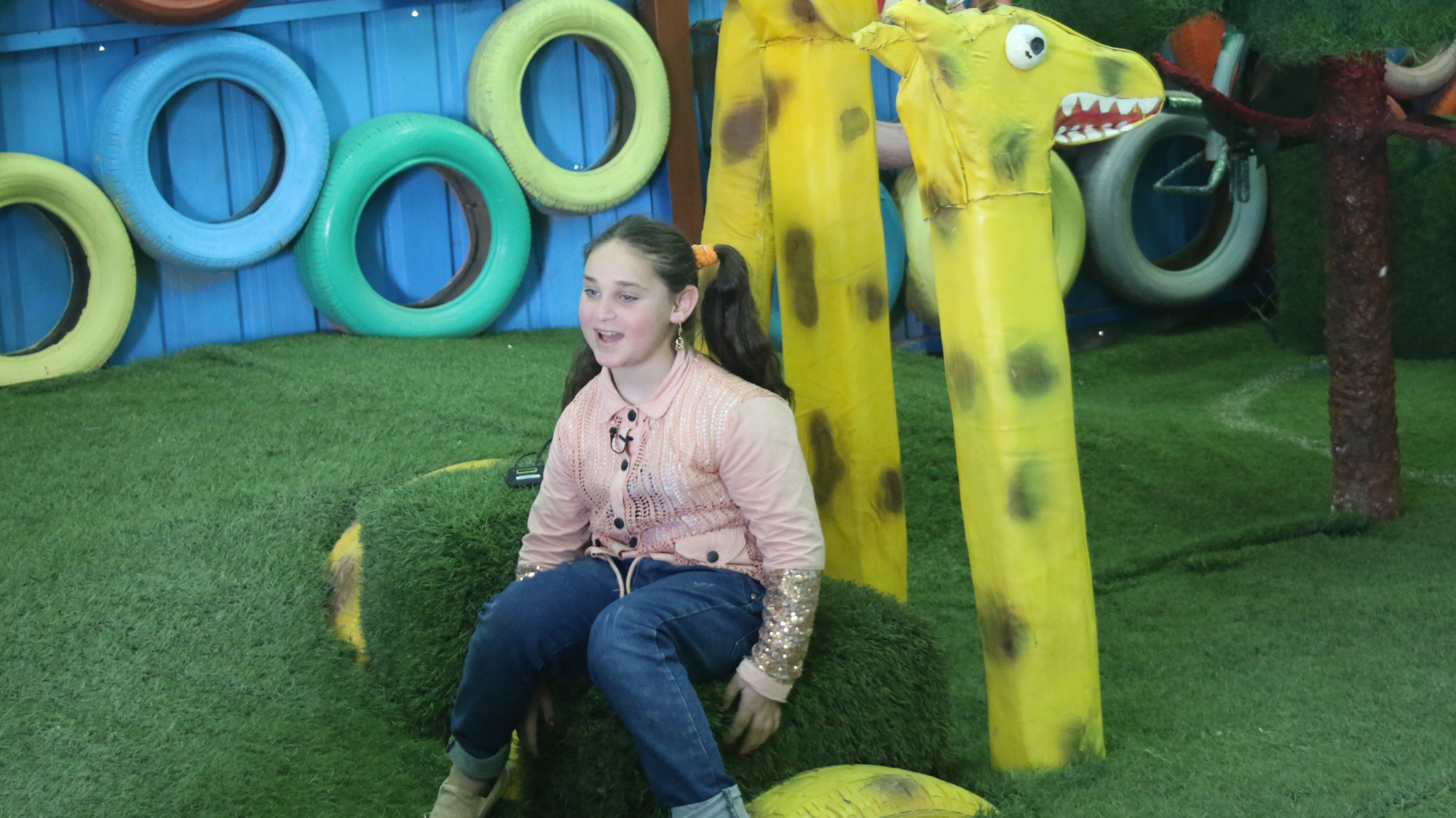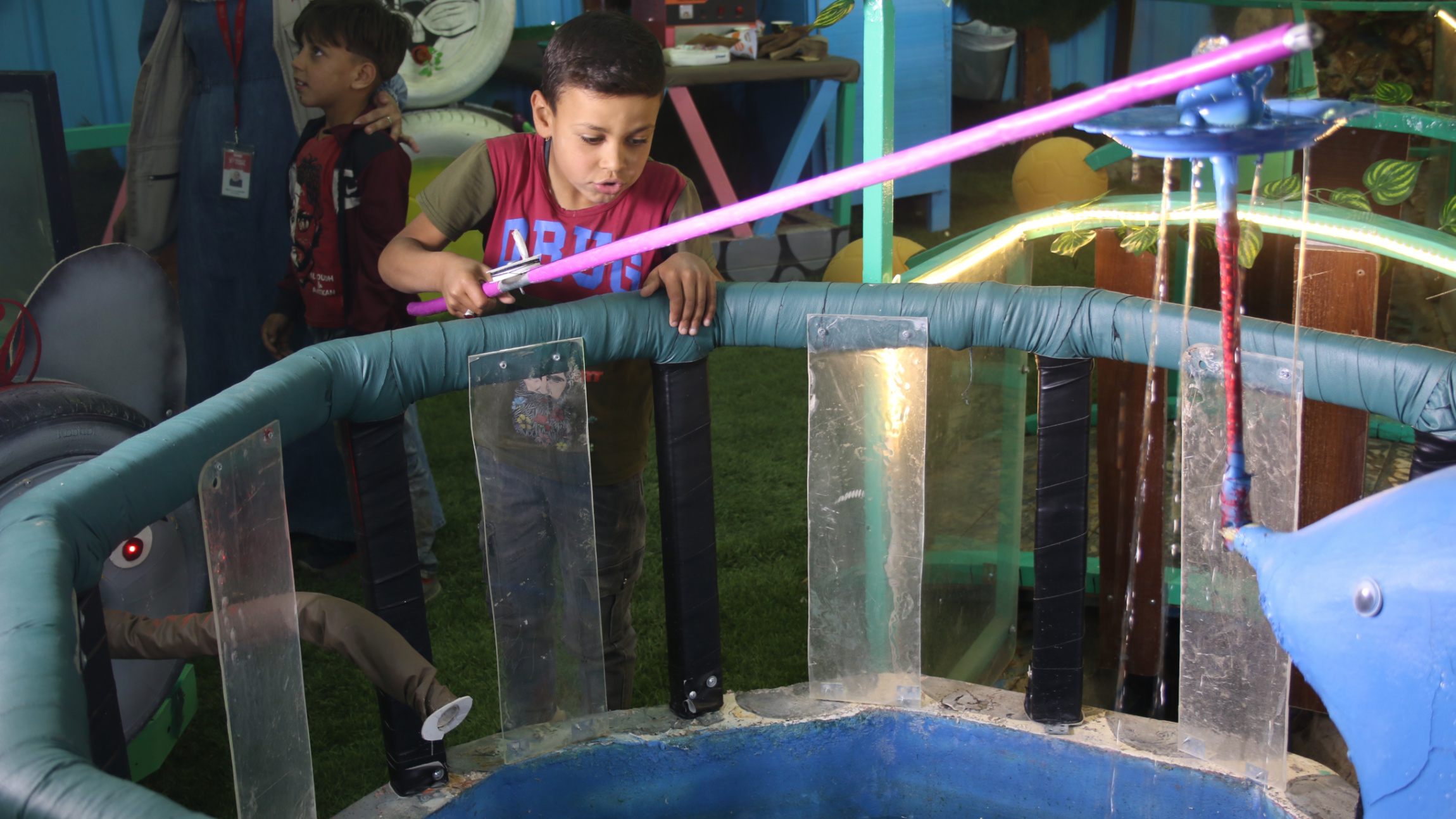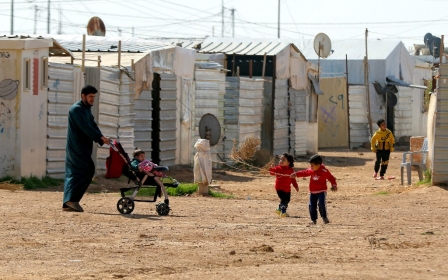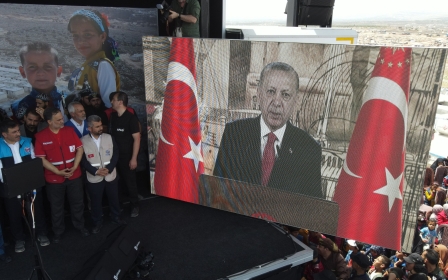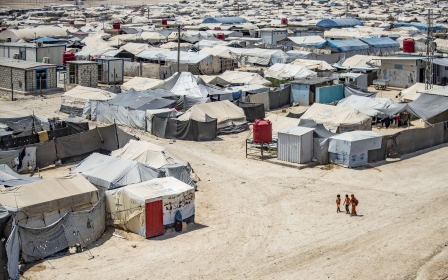Jordan: Interactive playground offers new experiences for Azraq camp children
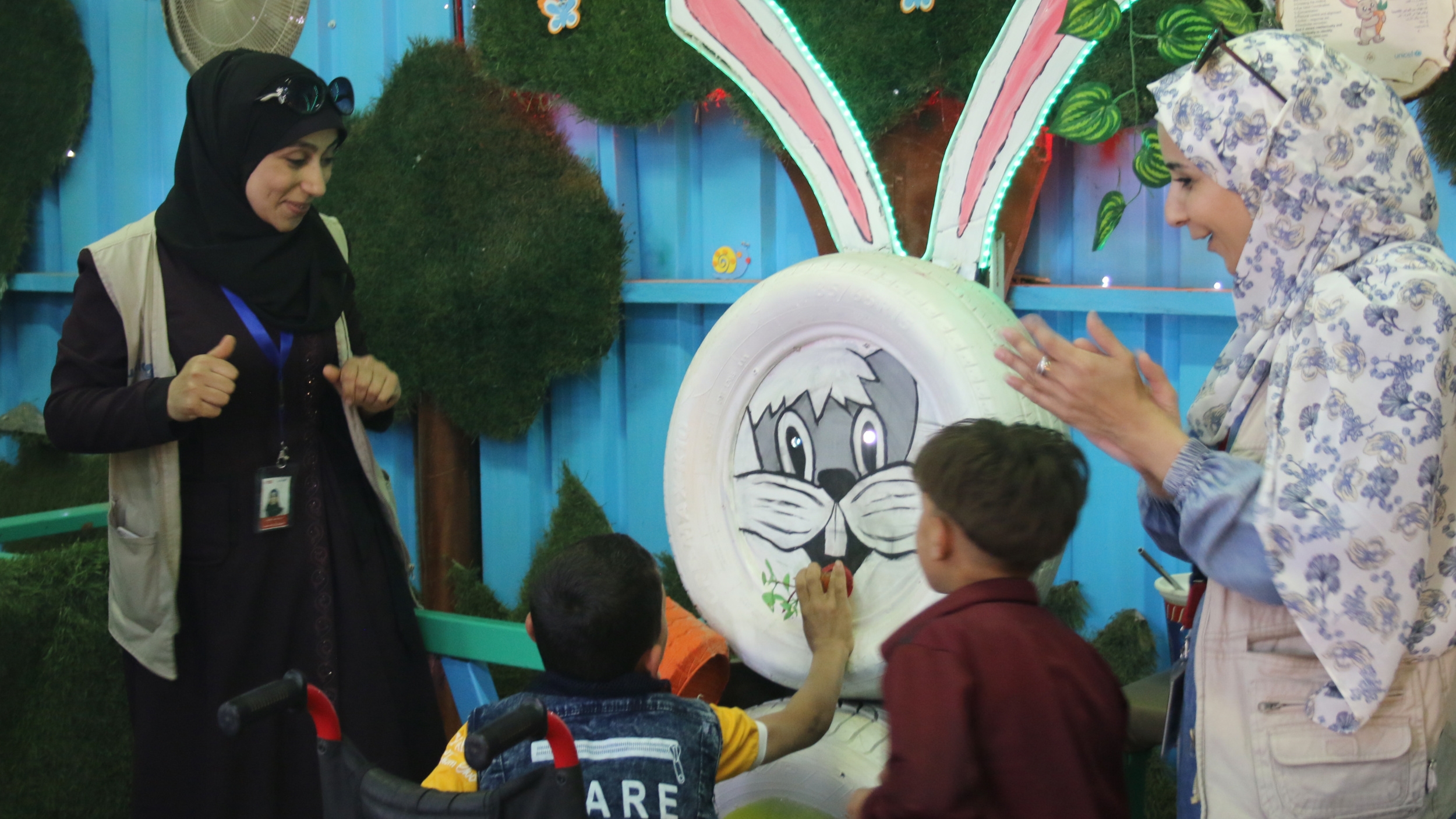
Ghofran al-Musa was three years old when she fled Syria's western city of Homs and went to the Azraq refugee camp in Jordan with her parents and sister.
Six years on, her mother, Ghania, said the camp, with its dusty and barren landscape, is the only world her daughter knows.
"What could she possibly remember from before? She was just three," said Ghania.
The family live in Village 5, a high-security area of the Azraq camp, which is subdivided into villages, 90km from Jordan's border with Syria.
With residents needing a permit to leave the camp, Ghofran and her sister Malak, 12, have not left Azraq since they arrived.
New MEE newsletter: Jerusalem Dispatch
Sign up to get the latest insights and analysis on Israel-Palestine, alongside Turkey Unpacked and other MEE newsletters
'When we assess children and they see a picture of stairs or a tree, they don't know what this is'
- Walaa Abu Sheira, Mercy Corps
Walaa Abu Sheira, field officer at Mercy Corps, told Middle East Eye that the limited experiences of children in Azraq camp affect their development and understanding of the world.
"[There are not many] children here who understand or have normal experiences," she said.
"For example, when we assess children and they see a picture of stairs or a tree, they don't know what this is."
Like other children, the Musa girls attend school in the village, where they receive extra support from Mercy Corps' inclusive education programme. The programme, supported by the United Nations Children's Fund (Unicef), enables students with all types of disabilities to be integrated in the classroom with other children their age.
As part of the programme, Mercy Corps and Unicef have now opened an inclusive playground at the school compound, with the aim of engaging children with different learning needs.
The playground is the culmination of more than two years of work by staff and volunteers in the camp. It features animal-themed play stations made almost entirely from scrap material, including tyres, asphalt and discarded metal.
Abu Sheira said the playground aims to introduce the children to things that they may not have been exposed to before.
"Outside the camp, they [would normally] experience a lot of things. Colours, shapes, even animals they don't know," Abu Sheira said.
Speaking of the potential benefits of the new playground, Tanya Chapuisat, representative of Unicef Jordan, said: "Play-based learning is critical for strengthening learning motivation and outcomes for children, as well as helping them to explore and make sense of the world around them."
'We're excited'
One of the first visitors to the new playground was eight-year-old Ahmad Ali, who has cerebral palsy and uses a wheelchair. He was introduced to a frog made out of tyres, and a programme officer showed him how to shake the frog's mechanical arm.
Ahmad's mother, Aasha Ali, said her son and another two of her five children were born inside the camp after the family fled Raqqa, the former Islamic State stronghold in eastern Syria, eight years ago.
The family previously lived in one of Azraq camp's unrestricted areas, Village 6, before being moved to Village 5 four years ago, said Ali, without elaborating on the reasons behind their move to the high security area.
"Everything was hard in the beginning," she said. "We weren't used to the place. It was strange for us, to just leave our homes and find ourselves here."
By attending school and with the help of time, they have found ways to cope, Ali said.
She herself is a paid volunteer at the school. This allows her to be closer to Ahmad and gain new skills while earning a small income.
She said the school is harder for Ahmad than other children but that the inclusive education programme is supporting his development. In reference to the opening of the new playground, she said: "We're excited, of course."
Cut off from world
Village 5 holds about 9,000 of the camp's 40,000 residents and was built in early 2016 to cope with the increased number of refugees crossing the Jordan-Syria border and amid growing concerns regarding national security.
Bahaa Abu Sweilem, education coordinator with Mercy Corps, said the restricted area was created to establish a system of checking those who enter the camp and to keep the refugees safe.
Human rights groups, however, have raised concerns about Village 5, particularly regarding allegations of forced relocations and arbitrary detention of Syrian refugees.
According to a US State Department human rights report from 2020, the camp is sometimes used as an alternative to deportation for offences that include expired registration documents, criminal activities and "potential security risks," which the report says were not clearly defined.
The report says that, in 2019, over 2,000 refugees were forcibly relocated to Village 5 and that the "vast majority" were not informed of the reasons for their transfer.
Residents in Village 5 told MEE that they do not have contact with those living in the rest of the camp, other than through the perimeter fence and through rare permits.
Ghania said her daughters' uncle and aunt live in Village 6 and that they sometimes see them, but only "through the fence".
She said the rest of their family has now returned to Homs city in Syria and that she would like to join them, but she does not have the money or know if it's even possible.
A hard life
The minimal facilities in Azraq camp also take a toll on the children, said Abu Sweilem.
"They have a harder life here inside the camp," he said, pointing out that the containers that house residents do not have running water or toilets.
For every 12 containers, there are two toilets and showers, and residents must collect water for washing and drinking from a central location in the camp.
"[In] exceptional [cases], they started to provide toilets and private latrines for people with disabilities and the elderly," Abu Sweilem said.
In order to cook food for themselves, each person living in the Azraq camp is provided with a limited 23 Jordanian dinars ($32) per month by UNHCR, the UN refugee agency, which they use to buy food and groceries from the camp's shops.
Abu Sweilem said residents rely entirely on NGOs in the camp to access any health or assistive services.
'All our life is the camp'
- Aasha Ali, refugee
"Otherwise, you will not be able to have your hearing aids, your eyeglasses, your wheelchair."
Referring to these conditions, he said: "You can see how difficulties start from here."
Aasha Ali said that being so cut off from the world is having an impact on her children. "They haven't seen anything outside, not a city, not trees. Nothing other than the camp," she said. "All our life is the camp."
Sitting next to her in the playground, watching her daughters, Ghania said she doesn't know what the future will look like.
"We hope that they will open Village 5 some day. God willing, we could have some freedom," she said.
With little prospect of most of Syria's refugees being able to return home soon, the possibility of any change seems distant.
Malak, Ghania's daughter, said she had seen the small fishpond, with wooden fish inside.
"I just saw it from the window. I like it," she said. "We will play, and I will catch some fish."
Middle East Eye delivers independent and unrivalled coverage and analysis of the Middle East, North Africa and beyond. To learn more about republishing this content and the associated fees, please fill out this form. More about MEE can be found here.


